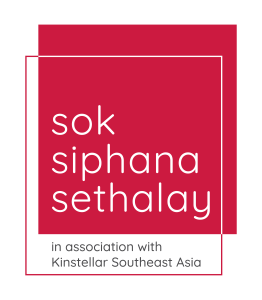Ensuring NCAC’s Jurisdiction: Key Considerations for Drafting Effective Arbitration Clauses
In dispute resolution, arbitration clauses are vital in determining how conflicts are resolved. Precise drafting is crucial to ensure that the National Commercial Arbitration Centre (“NCAC”) has jurisdiction. Ambiguous or defective clauses often lead to jurisdictional issues, potentially resulting in the dismissal of claims. To ensure that future disputes are settled by the NCAC, the arbitration clause must be drafted with precision.
ESSENTIAL COMPONENTS OF WELL-DRAFTED ARBITRATION CLAUSES:
A more detailed and precise arbitration clause is likely to facilitate a more straightforward and efficient resolution of disputes. When drafting an arbitration clause, at least the following should be considered:
Clear Scope of Arbitration: Begin with a clear and unambiguous statement that the parties agree to submit their disputes to arbitration.
Administration and Rules: Specify that the arbitration is administered by the NCAC in accordance with the Arbitration Rules of the National Commercial Arbitration Centre in effect at the time the arbitration is initiated.
Seat of Arbitration: The seat refers to the legal place of the arbitration, which determines the procedural law governing the arbitration. Note that under the Arbitration Rules of the National Commercial Arbitration Centre, issued on 28 March 2021 (“Rules”), unless the parties agree otherwise or the Tribunal determines that another seat is more appropriate, the seat of all arbitrations conducted under the Rules shall be Phnom Penh, Cambodia (see Article 31 of the Rules).
Number of Arbitrators: The number of arbitrators should be specified and shall be an odd number (e.g., one, three, or five) to prevent ties in decision-making. Note that if the parties do not agree on the number of arbitrators, the Rules will apply, which stipulate that the tribunal shall consist of three arbitrators (see Article 24 of the Rules).
Language of Arbitration: Specify the language in which the arbitration proceedings will be conducted, as this choice affects procedural communication and documentation throughout the arbitration process.
Governing Law of the Substantive Matter: The parties may decide which laws or rules of law to be applied by the Tribunal to resolve the substantive matter. If parties do not reach an agreement on governing law, the Tribunal will choose the laws or rules of law which it considers appropriate (see Article 32 of the Rules).
USING NCAC’S MODEL CLAUSES
To ensure the NCAC’s jurisdiction in the event of a dispute, the parties may consider incorporating the Model Arbitration Clauses included in Annex 2 of the Rules, which read as follows:
Arbitration Clause:
Any dispute arising out of or in connection with this contract, including any question regarding its existence, validity, performance or termination, shall be referred to and finally resolved by arbitration administered by the National Commercial Arbitration Centre of the Kingdom of Cambodia in accordance with the Arbitration Rules of the National Commercial Arbitration Centre (NCAC Arbitration Rules) being in force at the time of commencement of arbitration, and by reference in this clause, the NCAC Arbitration Rules are deemed to be incorporated as part of this contract.
The seat of the arbitration shall be [Phnom Penh, Cambodia].
The Tribunal shall consist of ______________arbitrator(s).
The language of the arbitration shall be ______________.
Governing Law Clause
This contract is governed by the laws of ______________.
Contributing Authors:
Author Name 1:
Eszter PAPP
Senior Foreign Counsel
+855 12 278 920
Author Name 2:
Meanfong LY
Associate
+855 92 227 732
[Disclaimer: The information provided herein is for the reader information only and is not intended to offer any form of legal advice. Always obtain formal legal advice from qualified legal counsel with respect to this matter]





